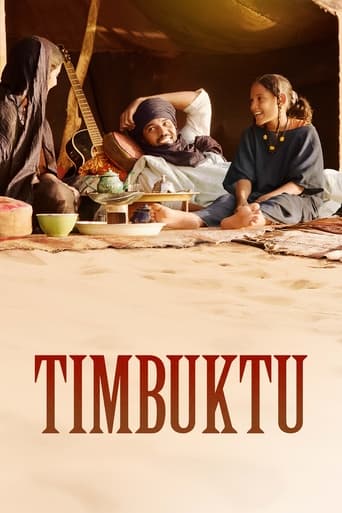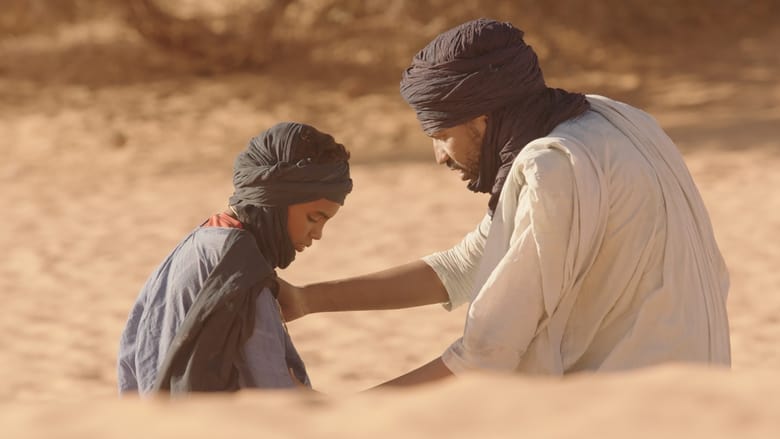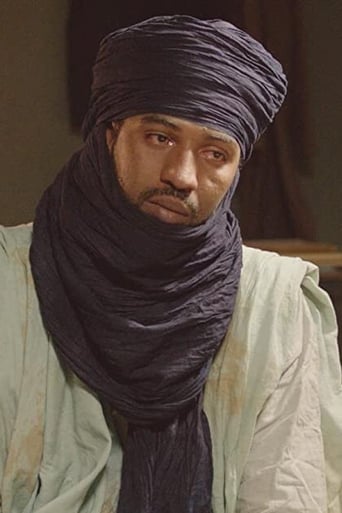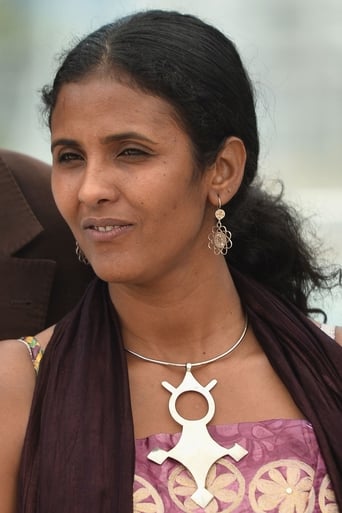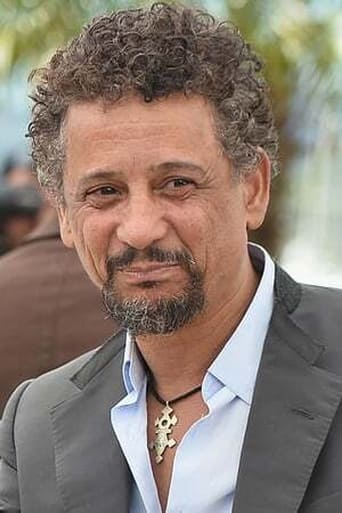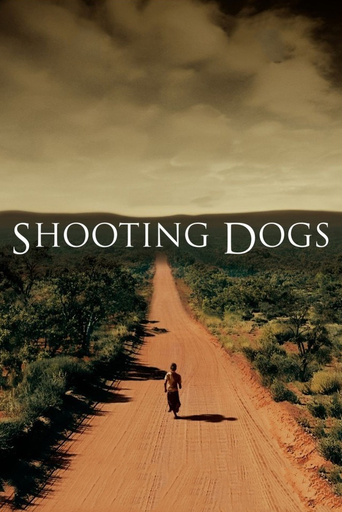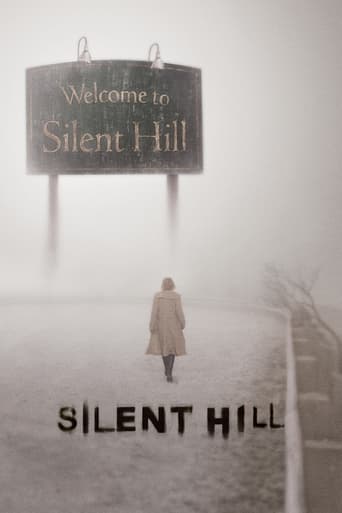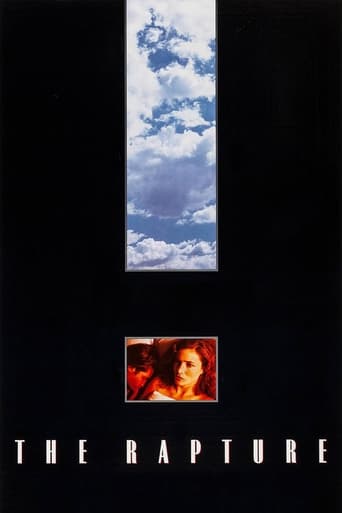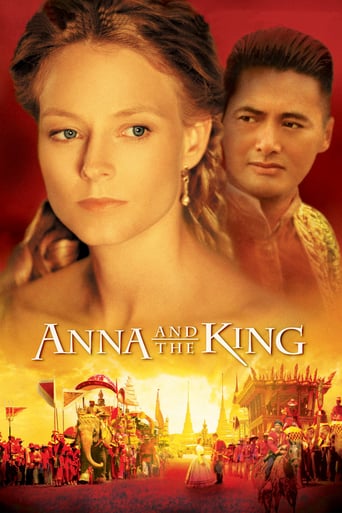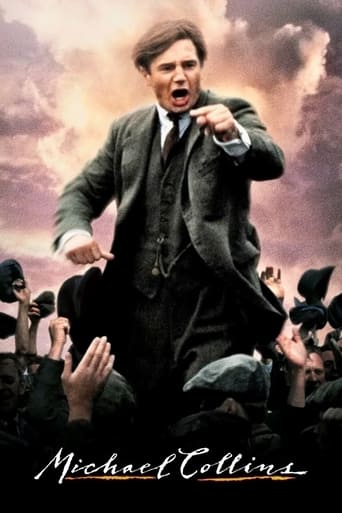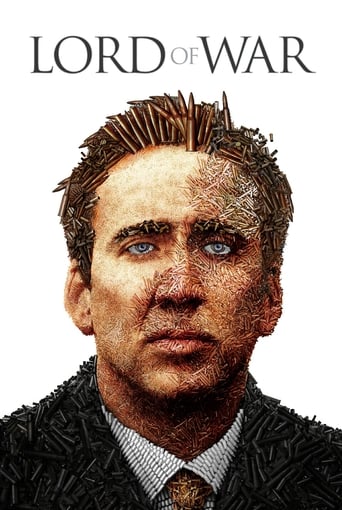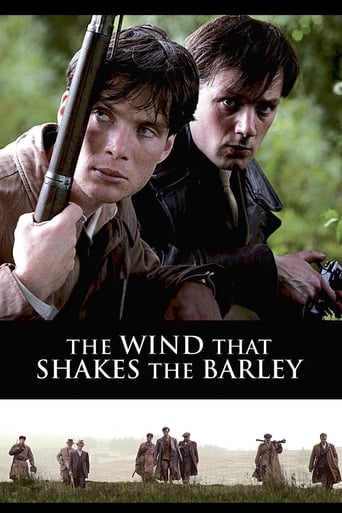Timbuktu (2014)
A cattle herder and his family who reside in the dunes of Timbuktu find their quiet lives — which are typically free of the Jihadists determined to control their faith — abruptly disturbed. A look at the brief occupation of Timbuktu by militant Islamic rebels.
Watch Trailer
Cast


Similar titles
Reviews
Very very predictable, including the post credit scene !!!
So much average
Slow pace in the most part of the movie.
Excellent adaptation.
To me the visual of the film is extremely insipid, savorless, amazingly dull and plainly disappointing! And in that area, someone will have to explain to me how cinematographer Sofian El Fani, who once again reveals himself as an amateur, actually did get a credit for this movie. Very rarely do we see technical challenges. The movie's visualization is so technically repetitive and mind-numbing that it makes the whole movie extremely boring (how many viewers did say they were checking their watch!). Timbuktu's stunning sandy deserts, lakes and caved houses, which should have been splendidly rendered, are regrettably reduced to being consistently filmed with the same elementary shots over and over. It could have been merely OK for a documentary (which the movie was supposed to be BTW). What makes the filming approach so tedious is that Sofian El Fani fails to convey emotions through camera angles (kind of reminded me of La vie d'Adèle where El Fani makes such an excessive use of close-ups that it becomes unbearably repetitive to the viewer).So unless there was a political move to credit Tunisian film crew members, such as El Fani, (Original Score award to Amine Bouhafa was well deserved though), there is no technical basis whatsoever for him receiving this award for best cinematography. Globally, this film probably moved Western World viewers -- that's why it actually got credited--, but it no manner does it contribute to cinema or art.
This film's story was, for me, a chef's salad where it should have been a whole tomato. Or a steak, perhaps. It purports to be the story of a small village into which the Taliban, or generically "the jihadists" move in to run the show. There are scenes of these men barking orders to the villagers about what to wear or what not to do, but the center moves to a man, his wife and their 12yo daughter living in a tent on the village outskirts, and another man who fishes with nets in a river which he seems to think is his own property. Then there are the pointless scenes of the jihadists spinning cookies in a Toyota pickup. And the crazy woman in the village. And, and....none of these events seem to bear a relationship with any other. Eventually a murder is committed which has absolutely nothing to do with the jihadists having taken control of the village, except they mete out a death sentence to the confessed murderer. There is never any suspense concerning the man's fate so this isn't really a spoiler alert, but after the jihadists gun him down they all jump in their pickups and take off, leaving the viewer with the impression they won't be back. After watching, I read a few other reviews extolling its message and power, but to me it was an unsatisfying mish-mash of unconnected events. None of the jihadist dictums were a surprise, not adding anything to what we've known for many years about these sick thugs and their perversion of the Muslim faith. But what bothered me more than anything else was that "Timbuktu" was absolutely devoid of emotion.
For starters, I'm not too big a fan of slow, rather speechless films like this one. At the same time though, it still had me captivated like the other ones and for the same reason as well. It's very interesting to me seeing what life is like in countries I never really hear or care about. Also seeing the way Islamic militant groups are outside of the battlefield was a cool thing to experience. The movie also showed how everyday people live under their governmental control. I found a lot of the rules they imposed and the punishments for breaking those rules to be quite extreme. A woman was given 80 lashes for singing in her home. Something I found strange about this system was that there was a set amount of lashes for sinning, but then you were given more lashes if you confessed to doing that sin. I also just don't see what's bad about singing in your own home, or just having a good time playing soccer. That's another thing. Soccer was seen as a sin for some reason and then the kids started playing without a ball and it seemed like it didn't matter, so is soccer the sin, or is playing with balls a sin?
Timbuktu won the Francois Chalais Award at Cannes in 2014 and was nominated for Best Foreign language film at the 2015 Academy Awards. It's easy to see why. Not only is it a beautiful, serene and well- made film but it also has the fortitude to take on radical Islam in a brash, yet compassionate way. The fact that this film and director Abderrahmane Sissako has been readily accepted by the western world is not only evidence that audiences are willing to see films depicting extremism, but are willing to accept a more nuanced version than the caricatures we've conjured in out own minds.There are many stories covering the breadth of Timbuktu, though the main and most powerful tale concerns Kidane (Ahmed) and his family. Kidane, his wife Satima (Kiki) and daughter Toya (Walet Mohamed) live on the outskirts of town as a family of cattle herders. For the most part they're far away from the oppressive world of the Ansar Dine occupation that took over the ancient city of Timbuktu from 2012 to 2013. The only encounters they seem to have is between Jihadist (and driver in training) Abdelkerim (Jafri) who covets Satima. One day a local fisherman kills one of Kidane's herd. From there the Jihadists converge on the family, administering their harsh interpretation of Sharia Law.There are many side stories that decorate the edges of Timbuktu's moral parable. While these stories don't necessarily provide interesting characters they do provide some arresting images. An audacious woman known by the locals as La Chanteuse (Diawara) constantly employs subtle forms of silent protest against the city's occupiers. The simplicity of her protests provide the film with some iconic images. In one scene another woman is given twenty lashes for singing and being in a room with a non-relative man. As she sobs with every stroke of the whip, she begins to sing in a singular act of defiance. Another almost absurd aside includes a group of school children playing soccer without a ball since the sport itself is forbidden.The Jihadists themselves are portrayed as foolish hypocrites; sneaking smoldering puffs of cigarettes smoke and conversing about their favorite soccer teams when no one is watching. When two of them try to enter a mosque with weapons, the local Imam (Cherif) curbs their excesses with sermons on humility, leniency, respect and kindness. Their reactions are often ones of puzzlement, unable to keep up with the Imam's learned discourse.Yet it's moments like these that provide the film's biggest trouble spots. In an interview with Al Jazeera, Sissako explained that he's trying "to speak on behalf of people who are frustrated with this image...this constant degrading image of Islam." To that end Timbuktu is less of the humanist work like his previous Waiting for Happiness (2002) and more like a classroom lecture. Many have latched on to the film's zeitgeist and made comparisons to The Great Dictator (1940). One could no doubt take Chaplin's closing monologue and feel the same sense of erudite pretension. Yet by coming out and saying what the film's about, it stunts the film's natural humanity. We reach points of tragedy, not with a sense of loss but with a narrative coda. One that resembles and argumentative rebuke.The film's discourse also feels unnecessarily chambered when you consider Sissako's larger point. It's easy to charge cruelty and hypocrisy yet the challenge is to examine why the world of Timbuktu is sullied by cruelty and hypocrisy. Issues of displacement, poverty, globalization, colonialism (all of which are familiar themes to Sissako) are completely absent. Nothing is left ambiguous and one could not help but think Timbuktu's international success is predicated on whittling away such themes for the sake of moral clarity. Even Kidane's home-life reeks of the nobility through poverty prosaism that hasn't been in vogue since Maxim Gorky died.Abderrahane Sissako is certainly one of the most talented Cineastes coming out of Africa today. His visual grammar is on par with international contemporaries and his panache for emotional complexity makes him a torchbearer for Cinema's most renowned humanists such as Satyajit Ray, Masaki Kobayashi and Charles Burnett. Thus, Timbuktu ultimately feels like a compromise. The director's desire to connect with a larger (presumably) western audience seems to supersede the film's fertile narrative which is unfortunate. Yet by the merit of the film's imagery and some very potent religious themes, there is forgiveness, there is leniency.

